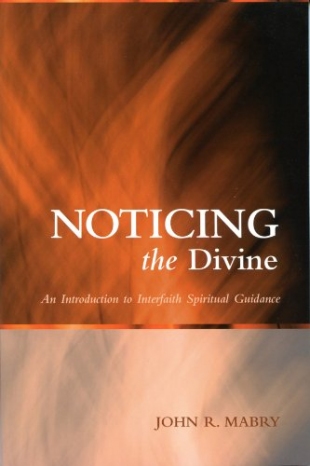John R. Mabry teaches spiritual direction, world religions, and interfaith theology at the Chaplaincy Institute for Arts and Interfaith Ministry. He is the former editor of Presence: An International Journal of Spiritual Direction and Creation Spirituality magazine. He is co-pastor of Grace North Church and the author of many books including Faith Styles: Ways People Believe. In this ambitious paperback, Mabry presents an overview of the challenges facing those who choose to specialize in the art of spiritual guidance in this era of deep ecumenism.
The assumption behind this form of ministry is that "every tradition is a valid and valuable expression of the Divine, couched in the cultural language and symbols of a certain people in a particular place and time." A spiritual guide provides a safe space to share the stories of our lives as well as to explore the holy stories and myths that stir us. Mabry discusses mentoring, epistolary guidance, one-on-one and group spiritual guidance, brief spiritual guidance, retreat facilitation, and institutional coaching as valid forms of spiritual guidance.
With commendable succinctness and deft insights, the author looks at distinctive emphases in the major religious traditions:
• Taoism and Nondirection
• Hinduism and the Many Faces of Divinity
• Buddhism and the Compassionate Witness
• Judaism, Ethics, and Covenants
• Zoroastrianism and Discernment
• Christianity and the Wounded Healer
• Islam and Spiritual Discipline
• Sikhism and the Interfaith Path
• Humanism and the Sacredness of the Mundane
Mabry is convinced that all of these paths are "worthy expressions of spiritual life, and valuable guides on the journey." More and more seekers are picking spiritual practices that appeal to them from different traditions and adding them to their repertoire of activities. The spiritual guide who is familiar with a large crosscut of practices can provide invaluable assistance. A few explained in this paperback are a rule of life, holy reading, pilgrimage, and discernment.
Mabry closes with a look at three forms of interfaith spiritual guidance: sharing wisdom, paradigm shifting, and beyond traditions. The last approach, which honors the wisdom of all traditions without being bound to any of them, is the wave of the future, and Noticing the Divine is a fine resource for all those heading in this exciting new direction.
